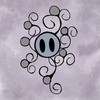HOME | DD
 DesdemonaDeBlake — 8 Tips for Creating a Villain
DesdemonaDeBlake — 8 Tips for Creating a Villain
#advice #antagonist #baddy #badguy #book #character #evil #guide #lit #literature #story #storytelling #suggestions #tips #tutorial #villain #villainous #how #novel #characterdesign #josephblakeparker #anybodycanwriteanovel
Published: 2017-06-16 17:56:43 +0000 UTC; Views: 44169; Favourites: 235; Downloads: 0
Redirect to original
Description
8 Tips for Creating a VillainChapter 5 “Characters” – Section 3.1 “Villains”
( Previous Tutorial) ( Next Tutorial)
"The lights burn blue. It is now dead midnight.
Cold fearful drops stand on my trembling flesh.
What do I fear? Myself? There’s none else by.
Richard loves Richard; that is, I am I.
Is there a murderer here? No. Yes, I am.
Then fly! What, from myself? Great reason. Why:
Lest I revenge. Myself upon myself?
Alack, I love myself. Wherefore? For any good
That I myself have done unto myself?
O no, alas, I rather hate myself
For hateful deeds committed by myself.
I am a villain."
-Shakespeare "Richard III"
Perhaps the most common type of antagonist for a story is the villain. For this guide we will be defining “villain” as the type of antagonist who seeks to thwart the hero for selfish or malicious reasons. This is not just a misunderstood adversary, but a legitimately bad dude who wishes to cause harm to others, or to at least step on others in their pursuit of personal goals. Later on, we will discuss other types of antagonistic forces such as monsters, anti-villains, and the like. Note that on rare occasion the villain can also be cast in the hero's role; and we'll talk a bit about that at the end of the tutorial. Also, these tips are not any sort of law or set of rules to apply for every story; exceptions always exist. Humorous stories or ones that exist just for action-based fun, for example, can happily ignore a lot of these tips and still serve their purpose. This is more for the creation of three-dimensional villains, in more complex/traditional works.
This tip should go without saying, except that it a very difficult feat to accomplish. As authors and as human beings, it can be a challenge for us to envision characters who are simultaneously intelligent and deep, and yet still choose to act in villainous ways. As a result, we end up with either anti-villains (a completely valid type of antagonist that we will discuss in another tutorial) or else one-dimensional villains. To create a villainous character who is also deep is a challenge, and one that we will try to tackle together step by step.
Begin by establishing why the villain wants to oppose the primary protagonist, what the central conflict is between the two characters. If your hero wants to free the slaves of a kingdom and the antagonist is a slaver, then the central conflict will be the villain not wanting to lose his or her slaves. Once you establish the central conflict, establish the villain's motivations. These have to be selfish and/or malicious in some way if you do not want your villain to turn into an anti-villain.
If your villain has seen a future where everyone will die unless he/she can enslave the people and put them to work building defenses, then he/she may be misguided but isn't villainous. However, if the villain is only doing it to create a slave army to stand between him/her and the coming destruction, he/she is definitely a villain. Remember that attitude (how mean the antagonist is to puppies) counts for very little for this sort of villain. All that matters are their actions when contrasted with the situation that they are in, and the motivation for their actions.
This does not mean that your villain has to be stronger in every way. Unbreakable did a beautiful job of contrasting a physically strong hero being emotionally and psychologically manipulated by a physically disabled villain (Ugh … I just complimented a Shyamalan film, and need to go wash my mouth out with soap). The villain should simply have something that gives them a distinct edge over the hero. Doing this gives your heroes something meaningful to accomplish, as no reader will respect a hero for overcoming a weaker villain. A stronger hero simply makes the reader perceive them as a bully.
When looking at the twelve-point plot-outline , you'll notice that I encourage writers to allow the antagonist to have victories against the protagonist—especially in the midpoint. Additionally, the victory of the antagonist should be so strong that it send the protagonist into a downward spiral. We do this for a few reason. It makes the eventual growth and change in the protagonist seem hard-fought and earned, making it more believable to the audience. It creates a certain flow, so that the dramatic tension is raised higher. But it also does something very important for the hero and villains themselves.
For the villain to win battles makes them seem more valid as opponents against the hero. If the villain is just some punk who can be easily overthrown, then it is no merit for the hero who beats them. Few readers will even spare interest for a villain who isn't powerful enough to grind the hero to a pulp (at least in a figurative sense). And if the hero is constantly winning anyways, then the final battle will have all the excitement of Superman beating Lex Luthor in a fistfight. So make your story, your protagonist, and your antagonist all more significant by making your villain powerful enough to actually win at various points in the story.
In this tutorial, we are differentiating villains as antagonists from monsters as antagonists (another future tutorial). And what distinguishes these two types of antagonistic forces is not their shape or species, but that a villain is a person. For example, Freddy Krueger (Nightmare on Elm Street) may look like a person, but he has none of the human emotions or behaviors that would make him more than a monster. Tiffany (The Bride of Chucky), on the other hand, may not be human but she has enough emotions and dept to make her a villain. This means that no matter the race, gender, or even species of your villain, your audience should be able to empathize on a certain level with them.
This seems difficult, given the challenge to have a deep character do evil things. But it is a realism worth striving for. What has helped me is to remember specific people in my life, ones who were abusive and who lived just for self-gratification. The things they had to endure in their own childhoods was abysmal and there was a very long and complex series of events that led to them becoming the vile people that they eventually did. And yet vile they did become, without remorse or character outside of being truly villainous. By making your villain so human makes the story feel real and creates complex emotions for the audience as well as the hero.
By adding humanity, you also add a layer of unpredictability to them. If a villain is singularly evil, they will always do the most evil thing possible. If the hero is hanging on a ledge, the villain is going to step on their fingers. It's predictable and eliminates the potential tension that could be in the situation. On the other hand, if you give your villain humanity then you will create tension in every scene that they are in. Sure, they will probably step on the hero's fingers; but there is always the outside chance that they will have a moment of empathy and throw the hero a rope. Then, not only does your hero have to emotionally deal with beating a villain who is powerful, but one who had goodness or humanity buried somewhere inside of them.
Very few people go along in their day-to-day lives, saying, “What dastardly deed shall I do today?” Even most tyrants and evil oppressors think that they are cosmically entitled to commit their acts of evil. So to make your villain more real, they must think that they have a right to do what they are doing. Your villain should perceive that something (god, nature, status, royalty, power, fame, revenge/justice, etc) has given them the right to commit a terrible deed. When villains just have the unnatural urge to do deeds of great cruelty for no reason other than a self-identity of evil, the character is often bordering on mental illness. At that point, you may be making your antagonist a monster who was once a human. There is nothing wrong with creating a human monster as the antagonist of your story. It is simply a different strategy in writing, and requires certain distinctions so that the audience knows that they are dealing with.
Often, writers embody their villains with specific evils they see in the world around them. This is fine if you are creating a monster. But when it comes to villains, your effort should be to create real and complex people for your story. And when you embody a person with everything you hate, just to be knocked down by the hero, you are merely creating a one-dimensional straw-man so that you can prove a point. Straw-men exist only for manipulating the masses into agreeing with your ideals, instead of making the reader question their own motivations and the multifaceted problems that create the good and the evil we see in the world around us. They don't strengthen your point, they just gain support from people who already agree with you. And worst of all, they don't make very interesting villains that can prove an emotional challenge for the hero and the reader.
An exercise for designing a believable and complex villain is to create a backstory that would have a fairly universal effect on anyone who might have undergone it. For example if you are creating a cannibalistic villain, maybe imagine a background where eating human flesh and acquiring a taste for it was an absolute necessity. Now, you don't have to create scenarios where you absolutely would have made the same decisions that your villain did. Every person and character is different, with different personalities, experiences, and levels of strength. This means that everyone will react differently to most given situations. But you want to be able to imagine that if you had the personality, experiences, and level of strength that the villain had before whatever trauma emotionally scarred them, you could realistically imagine yourself making the same decisions and becoming the same type of person. This exercise allows you to get more in touch with your villain, to more logically connect their background to their present actions, and to make them realistically complex/human.
Many people ask me if it is possible to cast the villain as the protagonist/main character. It is possible to do, but it is one of the most challenging feats one can accomplish. Many modern stories try to do it, by casting a traditional super-villain as the main character (like Despicable Me, Megamind, etc...) The problem is that the role of villain is relative, and only applies to each particular story. In other words, the Joker is only a villain because Batman and the better citizens of Gotham are there for him to harm. You can take the exact same evil Joker character, put him in a prison filled with people who are worse than him, and by contrast he becomes the anti-hero of the story. So what these storytellers do is simply take a flawed (and thereby more interesting) character, and challenge them with taking up the mantle of being a hero.
The only successful instance I've seen of using the villain as the protagonist is in Shakespeare's Richard III (there may be others, like American Psycho, but I haven't read them yet). In that story, he is a fully despicable villain who murders children and hurts others in his quest for power. He is three-dimensional, but there is nothing noble or good about his actions. If the audience supports him, it is only for his wit, humor, or for the doomed hope of his redemption. So there is a limit to how close we can get to him as the main character and how much we can want him to win in the end. Therefore, there is an inherently lower level of potential investment that the audience can have for the villain as a protagonist. So it is possible for you to create a protagonistic villain; but you must resist your compulsive desire to make them an antihero. You must make them interesting, believable, complex, and dynamic enough to carry the weight of the story, and to fulfill all of the expectations of a traditional protagonist.
If you are creating a villain character, write in a few sentences how (or if) you plan to use each tip in regards to designing your character.
Click here to submit your exercise to the Greenbat Tutorials Gallery.
-O-
Click Here to see my full gallery of writing tutorials!
or
Go to the previous /next tutorial.
Related content
Comments: 40

👍: 0 ⏩: 0

👍: 0 ⏩: 1

👍: 0 ⏩: 1

👍: 0 ⏩: 0

Hey. Shyamalan is capable of doing good movies. He just have a tendency to throw in many plot twists ! x)
👍: 0 ⏩: 1

Haha, I can concede that he has done movies I like.
👍: 0 ⏩: 0

Okay, question: Having a computer system cannibalising resources (energy and to some extend the heroes) so that it can remain functional to complete its prime directive, and because of that it ends up in direct conflict with the main protagonist, is that a villain or a monster? On one hand, I'd say it's a monster because of the ruthless logic (there is no emotional involvement in the decision), but on the other hand, fighting to survive is something deeply alive and to some extend human. Thoughts?
👍: 0 ⏩: 1

Yes, fighting for survival is something tremendously human. But it is something we share with viruses, bacteria, plants, animals, and most living things. So I would say that unless you have other emotional factors that would drive us to pity and empathize with the computer, and for its motivations to be complex, then it would fill the monster role. For an example of a killer robot who is not strictly a monster and more of a villain (though that is open to interpretation) see HAL from 2001 A Space Oddysey. I recommend just watching that segment of the movie unless you just really appreciate LONG visually artistic movies.
👍: 0 ⏩: 1

Thank you. Analysing that I realised my piece of fiction may not have any real villains, only heroes, anti-heroes and antagonists. Is the villain really a necessity?
👍: 0 ⏩: 1

No, it really isn't. A good villain is fun when it comes about naturally, but it shouldn't be forced into a story that doesn't need it
👍: 0 ⏩: 0

In one of my worlds, one of the main antagonists is a very dangerous man who may kill without remorse and is very powerful, but also has a code of honor. He is not sadistic, but he's cocky, brutal and vengeful. He also has ties to the main character in many different ways. He's not the main bad guy but is the most prominent villain. And he is also a dark reflection of an important supporting character:
They're both powerful
They're both extreme - both in devotion to their cause, allies and the lengths they go to to achieve their goals.
The supportive character, however, is pushed to a brinking point and becomes more and more ruthless, acting more like the villain in question.
👍: 0 ⏩: 1

Fun. A growing supporting villain/anti-hero conflict.
👍: 0 ⏩: 1

It's more of an anti-hero/anti-villain conflict. At least that is what I am going for. The supporting character in question has some positive growth, then someone he cares for is killed by the villain... and things go south. It's one push too many, and he nearly falls over the edge.
👍: 0 ⏩: 1

sounds like a tragedy.
👍: 0 ⏩: 0

would you say that death note does a more decent job of having the main character be a villain rather than just an anti hero?
👍: 0 ⏩: 1

I would classify Light as a dark/misguided/gruesome hero, based strictly on my interpretation of the story. The world around him is more messed up than he is (going back to villain/antihero being relative), and his goal is not selfish or malevolent. In fact, his actions are made based on his own personal ideals of what is right. That isn't to say he's perfectly altruistic, but he isn't quite a villain or even an antihero. That being said, I think he's one of my favorite dark heroes.
On the other hand, I only watched the series up until the point where he kills L. So maybe something changes after that and he becomes a villain. I wouldn't know.
👍: 0 ⏩: 2

it's been a while, but from what i remember the world eventually got to a point where the killer was widely famous and became the center of attention in most societies, with people threatening to accuse those they didn't like of any crime they could think of just to get them on the "naughty list." light may have started out doing what he did for the greater good, but he definitely started doing things purely to stay in a position of power after L was out of the picture and he didn't feel pressured to lay low.
👍: 0 ⏩: 0

Is Light even capable of being the villain? Bad guy - sure; a villain, however, is meant to be the anthithesis to the main character. While Light does do gruesome things, L is the antagonist to Light's protagonist.
This is speaking from a guy who had a very strict literature teacher, though. The terms change in strictness from person to person.
👍: 0 ⏩: 0

With the project i'm working on, the villain's evil deeds are motivated by a prejudice instilled in him from an early age as well as his own selfish desires for more and more things to fill the emptiness in his life. He's intended to be sympathetic despite the evil things he does because he doesn't understand what will truly make him happy in his life, driving him to eventually commit suicide at the end once he's been defeated. I've found that for a villain, he's the character I emphasize with the most. I'm not sure if that's even a good thing.
👍: 0 ⏩: 1

Better too much empathy than too little 
👍: 0 ⏩: 0

On Tip 6. Isn't that a bit redundant? Because a Villian by its very own nature is a strawman representing a negative virtue, while the hero represents everything nice or at least learns positive virtues.
I mean, if you're going to write a complex character that serves as the story antagonist, you may as well not call them a villain.
writerandproud.blogspot.com/20…
👍: 0 ⏩: 3

A villain's simply someone who stands in the way of the protagonist/main character. Doesn't have to be bad. Take Malcolm in "Macbeth," for example. Malcolm is a villain in Macbeth, for example, even if his goals are more altruistic than the main character. The mere fact that his goals clash and go against the goal of the main character makes him a villain.
Bad guys do not mean villains in all cases - even though that is often the case.
That is what I think, at least.
👍: 0 ⏩: 1

I'm sure you mean antagonist.
👍: 0 ⏩: 1

Yeah, I am, but for many people, even writers and some reviewers, antagonist and villain seem to be interchangable terms.
👍: 0 ⏩: 0

Some people may define a villain that way, but I'm not so interested in that sort of definition (which is why I specified my definition in the first paragraph). I'm perfectly happy to have a complex villain.
👍: 0 ⏩: 0

I don't think that's right at all. A strawman is someone who embodies a very narrow interpretation of a trait, as if that very thing itself is evil, and the character has no depth or motivation otherwise than simply to be. A good villain is so much more nuanced than that. Same goes for heroes.
To reduce a villain and hero to the point of "a negative virtue" or "a positive virtue" is to make them flat and hollow. Being a villain or hero need not limit them to one or two character traits.
Perhaps it's the strawman part that trips you up. It's important to note that a strawman leaves a lot to be desired as a whole; it's very hard to undervalue a strawman as a character because they have very little value in the first place.
👍: 0 ⏩: 1

To be fair, when you brought up that tip I was mostly thinking of kids movies.
From Disney to DreamWorks and etc who usually have some pretty bland villains based on some archetype
that is supposed to teach some sort of "lesson". Like "The hero is good because he helps people" and the villain is
bad because he does the opposite, the villain is supposed to teach a lesson, as in, helping people is good, hurting them is bad.
Or with Star Wars, its villains are a strawman of autocracy, one of the messages of the movie is that democracy is good, autocracy bad.
I personally get tripped on the "Villain" part. Because Villain makes me think of Skeletor or some other
super evil super villain.
👍: 0 ⏩: 0

(*Reads Tip 4*)
You just described Day 13 of my "Shapeshifter" challenge.
👍: 0 ⏩: 1

Cool 
👍: 0 ⏩: 1

Okay, first, do you understand who I'm talking about when I say "Rob Bourdon"?
👍: 0 ⏩: 1

I'm slightly familiar with the musician and his work.
👍: 0 ⏩: 1

(Okay. Knows who Linkin Park is.)
I gave him a Double-Walker named Nex who is a shapeshifter and a sadistic cannibal bent on destroying Rob's his life.
(Looks like him from 2007.)
Um...okay...
There was this string of murders that Bourdie was accused of! So, he given one month to clear his name.
If Rob failed, it would've been a trial, and if proven guilty, Death Row!
(Was taken off the suspect list on Day 19, but still.)
👍: 0 ⏩: 0

"What has helped me is to remember specific people in my life, ones who were abusive and who lived just for self-gratification. The things they had to endure in their own childhoods was abysmal and there was a very long and complex series of events that led to them becoming the vile people that they eventually did."
Personally, the "misunderstood" or "abuse survivor" villain is a trope that no longer interests me. It creates good, well-rounded villains with human qualities, but it's been done to death and has become so formulaic you can, 9 times out of 10, accurately predict when the story is going to segue into a tragic backstory flashback. I feel like it's become a parody of itself, it's been done so much. If the villain says "I'm evil because my mother didn't love me", it won't spur pity or fear of what this emotionally unhinged villain will do next; it'll make the audience think this guy is just a pathetically laughable excuse for a bad guy. What's he gonna do next, tell us about the drawer full of letters he wrote to his mom that were never read?
Not to say the villains who are evil just for the sake of being evil are better, but their psychology is definitely more interesting to ponder.
👍: 0 ⏩: 1

It's perfectly valid to have preferences on what types of villains you like or dislike. but I'd say that the reason it's a so often used convention is that it's really the only realistic way of creating a villain. I think the problem is that the backgrounds have become cliched and unoriginal. It usually comes down to a physically abusive parent or something along those lines. And even that would be fine, if you made the specific situation interesting and unique to that character. A character who comes to mind is the Ice King from Adventure Time. Although not a villain by my predefined terms, he also has a horrific backstory that scarred him. But what makes it interesting and fresh (at least to me) is the level of tragedy and how uniquely the rather general villain backstory (loss of significant other and quick gain of power with madness) affected him so uniquely. That's my opinion anyways.
👍: 0 ⏩: 0

Currently reading Dean Koontz's 'Frankenstein Series'. . .Victor Frankenstein is a real POS in those books.
Tip 9 - Should you redeem your villain?
One of the common themes now a days in many stories is the 'Villain Who Finds Redemption'. From Regina/Evil Queen in Once Upon A Time to Sasuke Uchiha from Naruto. While such story ideas may seem 'good' on the surface concerning a villain's journey to redemption; in truth there is something major that is always missing from the vast majority of such stories - Justice For The Victims.
Using the two characters that I named as examples - Regina was the Evil Queen. . .who brutally terrorized and even killed anyone who got in her way. Yet she never really paid for her crimes during her time as a tyrant. The same goes for Sasuke Uchiha. He betrayed his team and nearly killed the main character, breaking the heart of the girl who loved him, broke his promise to his teacher who taught him a ninja technique that was meant for self-defense/defense of others only. He committed crimes that ranged from Treason to Terrorism. . .AND YET at the end of it all he get off with a warning, "Don't do that again or else you will be executed." That's dear reader is called, "A slap on the wrist." and such a punishment is as offensive as it sounds for all the wrong such characters do.
What is always left out/underplayed is the Victims. Very rarely do they find justice of some kind. There seems to be this mentality in story telling that 'A few good deeds erase all the past evil deeds.' Not only is that wishful thinking, its a bit of an insult to what justice is and why its needed. Even in the Bible, there are instances of God forgiving a person of their sin(s) but don't think the absolution was 100%. There was always a price to be had for committing a sin. FORGIVENESS & REDEMPTION DOES NOT MEAN THE NULLIFICATION/CANCELATION OF JUSTICE!
Now I'm not saying Villain Finding Redemption shouldn't be done but it should be smartly. Actions have consequences and the victims should not be turn into 'What Happened To The Mouse?' characters.
👍: 0 ⏩: 2

It's a very interesting idea. I remember when I first watched Kung Fu Panda 2, I was disappointed that Shen didn't redeem himself, but looking back on it now, it makes complete sense that he'd never do that. Every single decision he'd made over the course of the movie dug him deeper and deeper into a hole, and even if he could've chosen to make the long climb back into the light, it wasn't in character for him to do so because he'd do anything before he faced the consequences of his actions. I'm not sure how relevant this is, I just really wanted to talk about Lord Shen because I love that character and that movie so damn much
Anyway, I think to redeem or not to redeem really depends on the tone of the story, and the price the villain has to pay for their actions. Usually, if the villain does redeem themself, like Darth Vader, the price is their life. I suppose the heel-face turn/self sacrifice makes sense in that it means the writer doesn't have to deal with an enormous loose end and it's emotionally satisfying in a cathartic sort of way, but it also feels like a bit of a cheat to me because it means the villain doesn't have to deal with what they did. Similarly, the examples you described above where the villain gets off easy sound really cheap and stupid. I think at the end of the day, it's all about consequences. If you want your villain to become a good guy, that's fine, but they need to pay for what they did.
👍: 0 ⏩: 1

Given Vader's body count and the damage he did, he should never have been redeemed.(His body count is in the billions not including Alderaan) If anything George Lucas made Anakin out to have a split personality. Anakin was the 'Good Side' and Darth Vader was the 'Evil Side'.
👍: 0 ⏩: 1

Good point. Given the enormity of his crimes, perhaps there was no possible justice for him anymore. I think sometimes, it's too late for redemption, but I believe it's never too late to do good.
👍: 0 ⏩: 0

That is an important question to ask yourself for the end of the story .... whether or not to redeem. Sometimes I really appreciate a redemption. Other times I feel as if I would have respected the villain more if they stuck to their guns.
👍: 0 ⏩: 1

Depends on what kind of damage the villain has done and to what scale and also a bit of common sense. Murder a few people goes to jail for the rest of his life while trying to find redemption behind bars. Make Hitler look like an Eagle Scout and is clearly unrepentant. . .should be stopped hard.
👍: 0 ⏩: 0
